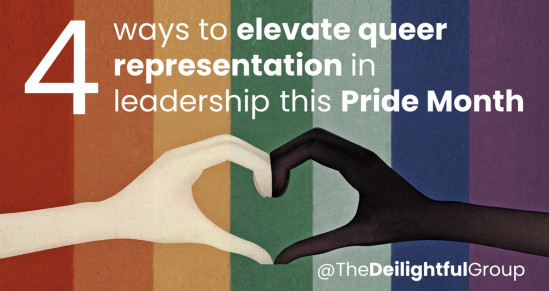The technological-based demise of Retail Banking signals the end of the last bastions of uniqueness within our global financial institutions. This poses a potentially fatal D&I dilemma for banks and regulators wrestling with their resistance to change and outdated perceptions of the value of difference.
Why is DE&I critical to the survival of banks in particular?
Under the Equality Act (UK 2010, US 1974) it is illegal to treat someone less favourably than others because of a personal characteristic that has no impact on their performance. Breaches in the act carry no limit in the amount of financial compensation that may be awarded to victims of discrimination.
Financial Services and other regulated industries carry a double jeopardy since failure to maintain diversity (in the context of preserving Adequate Challenge and stymieing Groupthink on strategic decisions) can result in the withdrawal of licenses to trade.
For this reason alone, if no other, managing People and Conduct Risk should be front and centre for competent risk stewards within our systemically important industries. And yet it is not.
Ethnicity should never be a barrier to opportunity
Today across western banks, we see that most non-white employees, plus a majority of LGBTQ+ and female staff all reside within Retail divisions. Why?
Discrimination is wielded by those who senselessly prefer to maintain racial, gender and other socially constructed measures of purity in the decision-making mechanisms of this world we all share. Emerging numeric and visible observational data unanimously demonstrate how successful they have been to purge our banks of uniqueness by harming prospects for marginalised colleagues or making strategic decisions that do not consider their interests.
Through active oppression, nepotism and a climate of fear, they deny entry into or progression within higher value customer segments such as Corporate and Investment Banking, where it is harder for technology to replace the many specialised, more senior, higher paid roles.
Why is the DE&I situation in banks worsening?
Thanks to a targeted, prolonged, and mostly online campaign linked to the far (alt) right, prejudice is on the rise, now approaching a critical capacity that reflects in the political landscape of our democracies.
Few industries have been impacted more than financial services, where oppression is often overt and active due to:
Rising egos (another word for prejudice) fueled by the asymmetric apportionment of higher salaries versus the equitable effort of those who helped deliver the success that pays for them.
The rising influence of conservative-based Eastern governments in world financial systems, and their growing desire to have input into the strategy of our biggest institutions (under the premise of systemic risk management) in exchange for granting lucrative access to markets currently dominated by their own domestic banks;
The industry's origins in Colonialism, making it an attractive place to work and thrive for those who privately romanticise the values of days gone by.
Where does their current strategy end for our banks?
By putting all our eggs in one basket but keeping the golden goose for ourselves, this raises three clear and potentially terminal DE&I challenges for an industry claiming to value difference:
Retail banking divisions are rapidly reducing in size, due to branch sales or closures, digitisation and automation. That means oppressed groups are likely to face a disproportionate share of the redundancies taking place and those to come - disadvantage upon disadvantage.
With growing understanding of oppression and inequity, marginalised employees finding themselves in the firing line may increasingly join the dots to launch legal action against terminating employers under the Equality Act - spiraling litigation and regulatory risks.
As corridors of power fill with ubiquitous white, mostly male faces, Deilight Consulting's own primary research has uncovered a vivid and testable loss of Adequate Challenge through Groupthink. That means strategic decisions will increasingly be made without question or critique, and based off narrower perspectives - in short, our businesses are getting dumber.
Words mean so little when our actions (or inactions) paint such a clear picture to the world.
Under its page 4 conclusions, Project Speak Up reported:
"Sadly there is no longer a future for BIPOC at HSBC. Furthermore, until the current strategy is reset, the future success & survivability of HSBC as a respected global financial institution remains in doubt."
This month, that statement comes closer to reality than prediction, with HSBC the first major bank to exit the bulk of US retail operations through impending transfer of the majority of its bank branches nationwide to Citizens and Cathay.
Tragically, the majority of the banks black and indigenous staff members go with them. Included among their many incredible contributions is the rich, multicultural identity HSBC thrives on today.
Billboard promises can be quickly painted over. Arbitrary targets to double black inclusion whispered away. But corporate strategies that continue to fail on the DE&I agenda will always ultimately end in institutional failure, for banks in particular.
.png)



